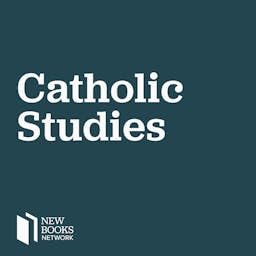Dr. Lucy Donkin’s Standing on Holy Ground in the Middle Ages (Cornell University Press, 2022) illuminates how the floor surface shaped the ways in which people in Medieval Western Europe and beyond experienced sacred spaces. The ground beneath our feet plays a crucial, yet often overlooked, role in our relationship with the environments we inhabit and the spaces with which we interact. “The ground beneath our feet goes unnoticed for the most part. Yet it guides our steps and shapes our identity in many ways. We obey or disregard markings that indicate where to cross the road, stand back from the edge of the platform, or position ourselves on a sports pitch…Differencing convention in homes and places of worship remind us that our own treatment of the surface is culturally constructed." Dr. Donkin argues that “In the Middle Ages too, the surface of the ground conveyed information to those who stood on it, prompted physical and imaginative responses, and marked out individual and groups in accordance with the values and concerns of the time. Indeed, in some respects, it played a greater role today in articulating space and identity, especially within ecclesiastical settings…. This book focuses on Medieval interaction with holy ground, within and beyond the church interior, asking how these shaped both place and people.” By focusing on this surface as a point of encounter, Dr. Donkin positions it within a series of vertically stacked layers—the earth itself, permanent and temporary floor coverings, and the bodies of the living above ground and the dead beneath—providing new perspectives on how sacred space was defined and decorated, including the veneration of holy footprints, consecration ceremonies, and the demarcation of certain places for particular activities. Using a wide array of visual and textual sources, Standing on Holy Ground in the Middle Ages also details ways in which interaction with this surface shaped people's identities, whether as individuals, office holders, or members of religious communities. Gestures such as trampling and prostration, the repeated employment of specific locations, and burial beneath particular people or actions used the surface to express likeness and difference. From pilgrimage sites in the Holy Land to cathedrals, abbeys, and local parish churches across the Latin West, Dr. Donkin frames the ground as a shared surface, both a feature of diverse, distant places and subject to a variety of uses over time—while also offering a model for understanding spatial relationships in other periods, regions, and contexts. This interview was conducted by Dr. Miranda Melcher whose doctoral work focused on post-conflict military integration, understanding treaty negotiation and implementation in civil war contexts, with qualitative analysis of the Angolan and Mozambican civil wars. Learn more about your ad choices. Visit megaphone.fm/adchoices
Voir plus
Voir moins
 Feb 22 20261 h et 1 min
Feb 22 20261 h et 1 min 1 h et 8 min
1 h et 8 min 1 h
1 h 49 min
49 min 1 h et 18 min
1 h et 18 min Jan 24 202638 min
Jan 24 202638 min
 Jan 13 202656 min
Jan 13 202656 min
